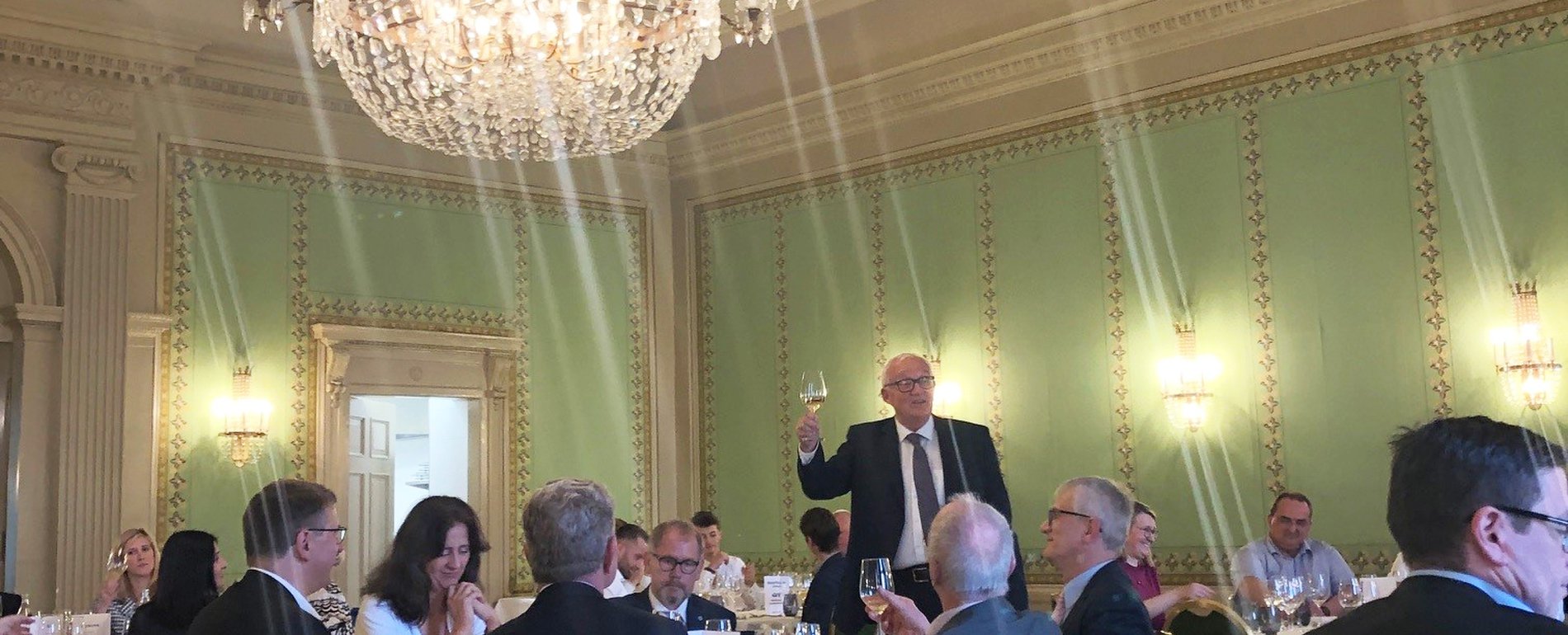2/22
The 11th Berner Tage on international transport law

Held on 9-10 June 2022 in Bern and attended by over 80 representatives of railways, institutions, universities and the legal community, discussions at the 11th Berner Tage focused on the latest regulatory developments and the impact thereof on transport law.
Thursday morning
The event kicked off with a panel of high-level personalities discussing the latest developments in rail transport law from the point of view of both legislators and the sector. OTIF Secretary-General Wolfgang Küpper reported on OTIF’s ongoing and planned future work. From CIT’s perspective, noteworthy workstreams include those addressing the need for alignment between CIM and the EU Customs Code and the need to further develop CIM and CIV. Sandro Santamato (Head of Unit, Single European Rail Area) set out the European Commission’s priorities, focusing his presentation on the many workstreams aiming to improve the framework conditions for railways in connection with the “European Green Deal” - an unprecedented opportunity to enhance rail! He also stressed the many initiatives to foster digitalisation in rail, in particular from a multimodal perspective. CER Executive Director Alberto Mazzola had the opportunity to respond to these many legislative initiatives, highlighting in particular the ongoing ETS revision, which could stimulate intermodal competition, and the AFIR (Alternative Fuels Infrastructure Regulation) to foster decarbonisation. From the sector’s point of view, the revision of the TEN-T Regulation could be further improved. Alberto Mazzola presented the CER ticketing roadmap, to which CIT is making a major contribution, in particular by further developing the Agreement on Journey Continuation (AJC). Lastly, he shared his concerns about the Commission’s draft PSO Guidelines.
The presentations were followed by a lively Q&A session moderated by the CIT Secretary-General.
Thursday afternoon
As is traditional at the Berner Tage, the afternoon of day one was devoted to Passenger and Freight workshops. For a report on each workshop, see the dedicated article elsewhere in this issue.
Friday morning
Day two of the Berner Tage began with two presentations dealing with the use of infrastructure from a legal perspective. RNE Vice-President Peter Ronai and Nina Scherf from CIT presented the jointly-developed standard contract for the use of infrastructure as an example of successful cooperation between the two organisations. Then Dr Claus Leizke of DB AG gave a presentation replete with tangible examples of court practice in apportioning liability for delays between railway undertakings and infrastructure managers. In the context of digitalisation, data protection is increasingly relevant. In this connection, Fernando de Lucas of RENFE gave a comprehensive overview of the issues railways must manage. Ms Karolina Kusz of PKP gave a fascinating analysis of the challenges facing railways at the interface between COTIF and SMGS/SMPS, in particular for railways operating across the EU’s external border. Former CIT Chairman Jean-Luc Dufournaud then illustrated the role of the SNCF Mediator and mediation in general as an effective alternative means of dispute resolution. The last presentation to the Berner Tage was given by Vanessa Perez (UIC) who reported on the lessons learned from Covid for transport law. Many valuable lessons had been learned over the previous two years, making the rail sector much better prepared for the next crisis.
The next edition of the Berner Tage will take place in Bern in two years’ time, in 2024.
cesare.brand(at)cit-rail.org
